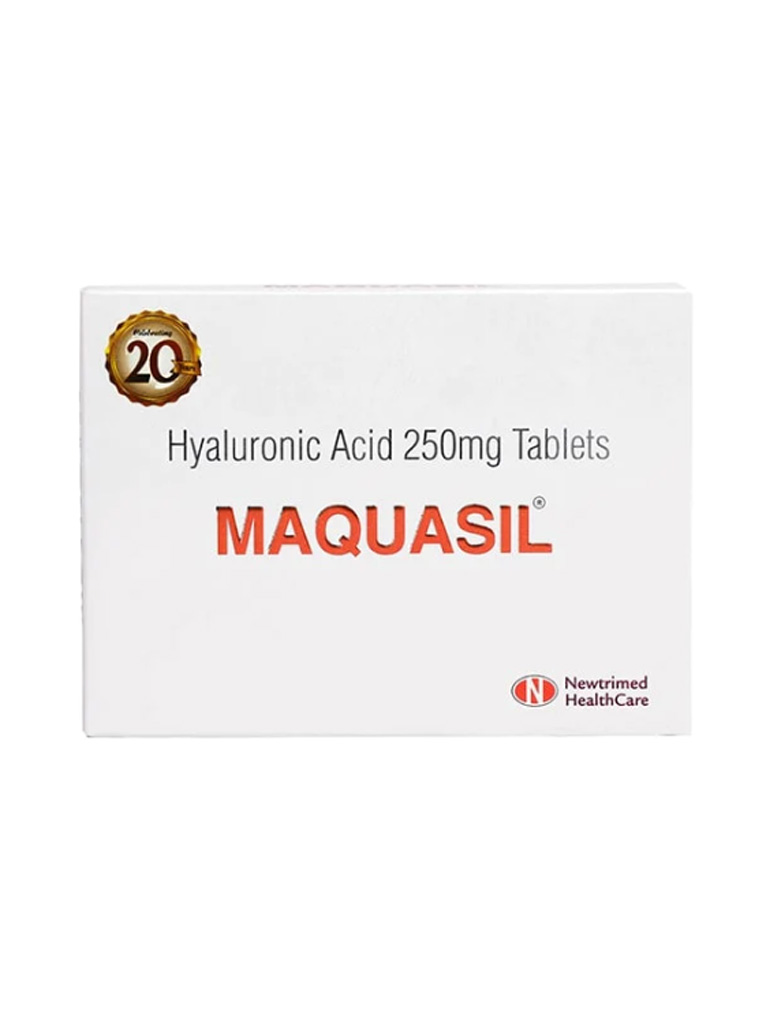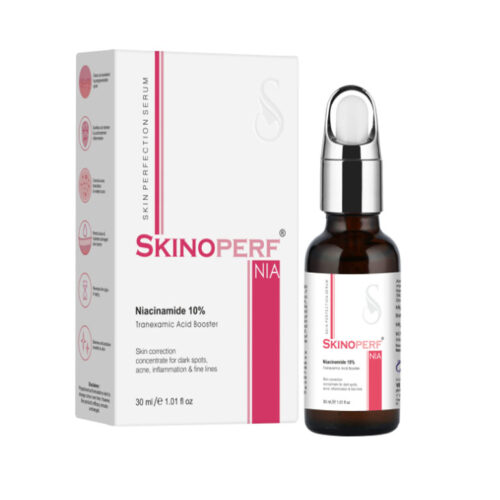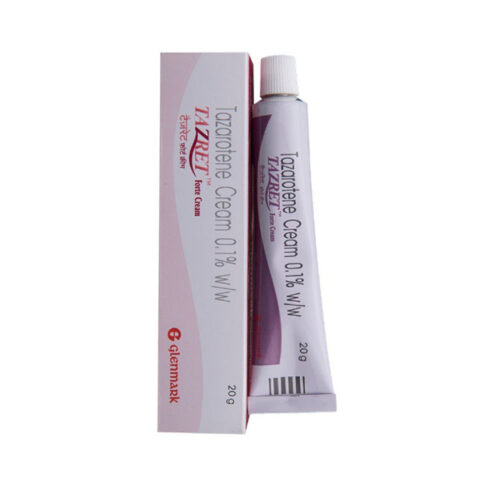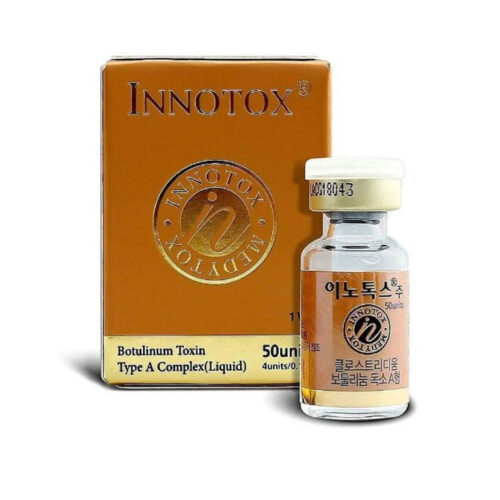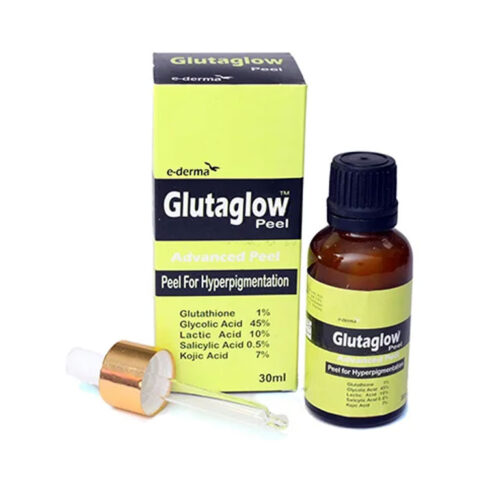Description
What is Hyaluronic Acid Tablet?
There is evidence that oral hyaluronic acid has antiaging properties that improve skin tone and reduce fine lines and wrinkles. According to a 2017 study in Clinical, Cosmetic, and Investigational Dermatology, after 12 weeks of treatment with oral hyaluronan, 60 people with crow’s feet (wrinkles near the corner of the eyes) experienced a reduction in wrinkle depth and volume. They also had improved skin luster and suppleness.
Two different concentrations of hyaluronan were used in the study, each dosed at 120 milligrams (mg) per day. Interestingly, people who were provided the higher concentration experienced similar results to those given the lower concentration, but in a shorter period of time.
A 2017 study in the Journal of Evidence-Based Complementary and Alternative Medicine similarly reported promising outcomes with hyaluronic acid supplements containing biotin, vitamin C, copper, and zinc. Specifically, the study found that after 40 days, 20 women, ages 45 to 60, had:
- Improved skin elasticity
- Improved texture
- Reduction in wrinkle depth
- 24% increase in skin hydration
Hyaluronic Acid Tablet is a medicine used in the treatment of osteoarthritis. This medicine is generally given when a patient does not respond to other conventional treatments. It helps decrease pain and swelling in the joints. Hyaluronate is similar to a substance that occurs naturally in joints and that helps joints work properly by acting like a lubricant and shock absorber.
Hyaluronic Acid Tablet can be taken with or without food. Take it regularly and do not stop taking the medicine even if you get better until that doctor tells you it is alright to stop. While on treatment with this medicine, you should avoid activities such as strenuous sports and exercise, or standing on your feet for a long time.
The medicine is generally well-tolerated with little or no side effects. However, if you experience any symptoms which you believe are caused by the medicine, you should let your doctor know. Your doctor may help with ways to reduce or prevent these symptoms by prescribing you an alternative medicine or by adjusting the dose.
To make sure the medicine is safe for you, let your doctor know if you have any problems with your heart, kidneys, or liver. You should also let your doctor know all the other medicines you are taking before using this medicine. If you are pregnant or breastfeeding, consult your doctor first before taking this medicine.
Osteoarthritis is a condition that causes pain and stiffness in the joints. Hyal Oral Tablet helps relieve pain and reduces inflammation and swelling in your joints due to this condition. This will ensure that you have a better, more active, quality of life.
Additionally, you may consider simple lifestyle modifications such as regular exercise, losing weight, maintaining good posture while doing various daily activities, and wearing comfortable footwear. This will help you manage mild symptoms of osteoarthritis very effectively in the long run.
Hyaluronic acid is used to treat osteoarthritis, a condition that affects the joints. It is most commonly used to treat osteoarthritis of the knee. It is not used as a treatment for rheumatoid arthritis. In a normal joint, a layer of cartilage or gristle covers the ends of the bones. Cartilage helps the joint move smoothly and cushions the ends of the bones. In osteoarthritis, cartilage breaks down and becomes thin. This leaves the ends of the bones unprotected and the joint loses its ability to move smoothly.
Hyaluronic acid is found naturally in joints and other parts of the body. In the joint, it is found in the cartilage and the synovial fluid that lubricates the joints to keep them working smoothly. In people with osteoarthritis, the hyaluronic acid gets thinner and is no longer able to protect the joint. Injections of artificial hyaluronic acid into affected joints may improve the protection.
Hyaluronic acid is usually offered to people with osteoarthritis of the knee if other treatments have not worked or are unsuitable. Hyaluronic acid oral helps reduce the pain caused by osteoarthritis. Some patients find relief from symptoms within a few days. Full benefits usually are reached 3-5 weeks after the treatment. The treatment may provide pain relief for up to 6 months. Response varies and oral routes do not help everyone.
Hyaluronic acid is generally very safe when used as a supplement, but people who are pregnant or have cancer or a history of cancer may want to avoid taking it.
Hyaluronic acid supplements can be safely taken by most people and provide many health benefits. Hyaluronic acid is well known for its skin benefits, especially alleviating dry skin, reducing the appearance of fine lines and wrinkles, and speeding up wound healing.
It can also help relieve joint pain in people with osteoarthritis. Other notable applications include hyaluronic acid eye drops to relieve dry eye and inserting hyaluronic acid directly into the bladder via a catheter to reduce pain.
Overall, hyaluronic acid is a beneficial supplement for a variety of conditions, especially those related to skin and joint health.
Hyaluronic Acid Supplement
Hyal oral is a hyaluronic acid supplement tablet. It contains hyaluronate salts that treat osteoarthritis, lubricate joints, and defy aging signs. Hyaluronic acid reduces friction in joints and increases moisture in articulation liquid. It helps relieve inflammation in osteoarthritis and knee troubles.
Hyaluronic acid is among the most potent skin moisturizers. It retains water and prevents it from evaporating. Similar to collagen and elastin, hyaluronic acid skin content declines with age. Therefore, supplying the skin with hyaluronic acid reverses aging signs. There is evidence that hyaluronic acid has age-defying properties. It plumps wrinkles and fine lines as well as boosts collagen production.
What is Hyaluronic Acid?
Hyaluronic acid is a naturally occurring sugar compound in the skin, joints, and connective tissues. It is a potent moisturizer as it can hold 1000 times its weight of water. It keeps joints and skin lubricated and blocks water evaporation off the skin’s surface.
As the skin ages, it produces less hyaluronic acid. Hyaluronic acid falls by 70% between the late forties and the beginning of the sixties. In senile skin, hyaluronic acid is present in trace amounts in the dermis while absent in the epidermis. Therefore, hyaluronic acid content has a strong correlation with skin age.
Antioxidants, vitamins, and lower UV exposure stimulate hyaluronic acid production and help the skin keep high moister. Aging manifests in the skin as a rough and dry skin texture, which explains why hyaluronic acid loss is an aging factor.
Hyaluronic acid skin benefits
The hyaluronic acid cosmetic potential is not limited to hydration and moisturization. It reduces inflammation, promotes healing and repair as well as protects against free radicals. Hyaluronic acid is a mediator in many chemical reactions, cellular signaling, wound reparation, and tissue regeneration. High levels of hyaluronic acid are associated with:
- Increase skin water content: the skin loses its ability to retain water with age because there is a wasting of structures that attract water, such as collagen or hyaluronic acid. Hyaluronic acid gives your body an extra amount of humectant to fight dryness and promote hydration.
- Counteract photodamage: UV light accelerates the aging process by speeding collagen breakdown and damaging skin cells’ DNA. Sun damage translates to deficient regeneration and low elasticity. Hyaluronic acid reduces inflammation and tissue damage caused by sun exposure. Moreover, its antioxidant potential prevents collagen degradation and cellular harm.
- Promotes wound healing and reduces scar tissue: Hyaluronic acid enhances blood circulation, providing wounded areas with nutrients, growth factors, and protein building blocks to boost tissue repair.
Other systemic benefits of hyaluronic acid include relieving joint pain and lubricating articulation surfaces. It also soothes acid reflux burns, treats dry eyes, and strengthens bones. Hyaluronic acid has a good safety profile. It has soothing properties, and most people don t experience adverse effects. Because it is a new compound in the pharmaceutical field, there is insufficient information about its use in pregnant or breastfeeding women.
In conclusion, Hyaluronic acid is a youth factor. Its levels reflect the health and integrity of connective tissues.
Benefits of Hyaluronic Acid Tablets
Hyaluronic acid, also known as hyaluronan, is a clear, gooey substance that is naturally produced by your body. The largest amounts of it are found in your skin, connective tissue, and eyes.
Its main function is to retain water to keep your tissues well-lubricated and moist. Hyaluronic acid has a variety of uses. Here are the scientifically-backed benefits of taking hyaluronic acid:
- Promotes Healthier, More Supple Skin. Hyaluronic acid oral can help increase skin moisture and reduce the appearance of fine lines and wrinkles. Topical treatments can soothe redness and dermatitis, while injections can make skin appear firmer.
- Can Speed Wound Healing. Applying hyaluronic acid directly to an open wound can help speed up the recovery process. It’s unknown whether supplementing with it would have the same effect.
- Relieve Joint Pain by Keeping Bones Well Lubricated. Hyaluronic acid supplements are effective at reducing joint pain in people with osteoarthritis. Injections can also be used but may come with risks.
- Soothe Acid Reflux Symptoms. A combination supplement containing hyaluronic acid and chondroitin sulfate may help reduce the symptoms of acid reflux in some people.
- Relieve Dry Eye and Discomfort. Hyaluronic acid is naturally found in the eyes and is often an ingredient in eye drops to relieve dry eye symptoms. It’s unknown whether supplementing with it would have the same effects.
- Preserve Bone Strength. Animal and test-tube research suggest that high doses of hyaluronic acid may help prevent bone loss, but no research has been conducted in humans.

